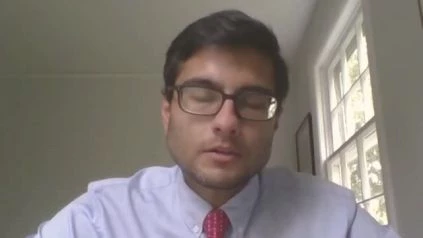Kunal Sindhu, MD from the Icahn School of Medicine at Mount Sinai speaks about the ASTRO 2020 Abstract 3009 Identifying Existing Knowledge Gaps in Palliative Radiation Oncology.
Body
Purpose / Objective(s): In patients with cancer, palliative radiation therapy can greatly improve symptoms and function. Previous research, however, has reported major differences with respect to palliative care in radiation oncology residency curricula. The Mednet, an online group of doctors whose aim is to “improve the exchange of information between doctors so that patients receive high-quality treatment wherever they are treated,” has become an increasingly used resource for radiation oncologists with clinical management questions in recent years. In this research, by analyzing all of the related questions posted on the Mednet, we tried to identify knowledge gaps in palliative radiation oncology.
Materials/Methods:
“We checked on or before January 7, 2020, for all questions posted on theMedNet and marked with the words” Radiation Oncology “or” General Radiation Oncology “and” Palliation. All questions found have been grouped into related thematic categories. For each question, four social interaction metrics were recorded: the number of times it was seen, marked as a “good question,” and answered; and the total number of comments posted in response to any answers. Using the Kruskal-Wallis and Mann-Whitney U Studies, variations in social commitment between the thematic question groups were evaluated.
Outcomes:
There were 161 questions listed, 147 of which (91 percent) were answered. Seven broad thematic categories were identified: 42 questions (26%) relating to the decision to treat a patient, 36 (22%) relating to treatment preparation, 26 (16%) relating to suitable palliative dose regimens, 19 (12%) relating to treatment logistics, 10 (6%) relating to supportive care, 8 (5%) relating to patient guidance, and 7 (4%) relating to pre-radiation therapy work-up. As an eighth thematic group, the remaining 13 disparate questions (8 percent) were graded.
Palliative radiation oncology questions were viewed 497.7 times on average (range 7-4657), 2.2 times (range 0-29) marked as a ‘reasonable question’, and 1.7 times answered (range 0-10); responses to each question earned an average of 0.4 comments (range 0-7). Among thematic question classes, the most average views (702.5) and answers (2.1) were given to questions about dose regimens. Questions about care logistics were most often identified as ‘positive question[s]’ (2.9 times on average) and the most average responses (0.8) were received in response to questions about the decision to treat a patient. There were no substantial differences in the statistical analysis of any of the four social interaction indicators between questions in the various thematic groups (p > 0.05).
The Conclusion:
Among palliative radiation oncology questions posted on the Mednet, we found several common query themes. These findings indicate that in terms of palliative care, major knowledge gaps exist among radiation oncologists. Modifications to the residency curriculum in radiation oncology can help reduce potential clinical uncertainties.

